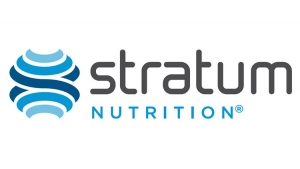By Mike Montemarano, Associate Editor09.28.22
The White House is hosting its Conference on Hunger, Nutrition, and Health today (Sep. 28) in Washington, DC. This is the first conference of its kind in more than 50 years.
The Biden Administration’s stated goal is to “end hunger and increase healthy eating and physical activity by 2030, so that fewer Americans experience diet-related diseases like diabetes, obesity, and hypertension.”
Ahead of the summit, the Biden Administration released its National Strategy for ending hunger, improving nutrition and physical activity, and reducing diet-related diseases and disparities. Proposals include, for example, front-of-pack nutrition labeling.
The strategy identifies actions across five pillars:
Available to view virtually, the conference will host five concurrent panel discussions involving food policy advocates and experts from the public and private sector.
In light of rising rates of obesity, type 2 diabetes, and prediabetes, the authors called for a comprehensive, multi-agency plan that goes beyond ensuring access to calories and isolated vitamins.
“Many population health outcomes have worsened even though nutrition science has advanced in the last 50 years, highlighting the ineffectiveness of currently fragmented efforts for translating findings into action,” they wrote.
“Poor nutrition is the top cause of disease in the world, yet it is ignored by most health systems,” they added.
The authors called for stronger nutrition standards in school meals, and greater accessibility to SNAP and WIC programs to help recipients shift from lowest-price decision-making to health-related purchases.
Preventing consumer confusion is another priority, the authors noted, such as with front-of-pack labeling, warning labels, and streamlining processes for health claims on more nutritious products.
The authors also called for support of research to advance emerging science on “the gut microbiome, plant bioactives, food processing, personalization, timing of meals, brain health, immunity, healthy aging, infertility, mental health, allergies, and more.”
The organization would also like to ensure that a retail nutrition and dietetics professional is available in all grocery outlets in the U.S. and in school settings. AND also supports full coverage of medical nutrition therapy in Medicare Part B based on referral, and without condition limitations, alongside other therapies.
AND further recommended improving school meals, requiring broader nutrition education in public school curricula, and other measures that incentivize access to nutrition for adults.
The organization called for fully funding the Dietary Guidelines for Americans process, along with funding research to inform its recommendations and education campaigns to reach all Americans.
“We need to provide Americans with more choices when it comes to their health care. The CDC’s ‘Second National Report on Biochemical Indicators of Diet and Nutrition in the U.S. Population’ reported that approximately 10% of Americans had a nutritional deficiency. Still, that number could be as high as one-third for specific demographics.
On specific policy goals, NPA noted its support for legislation introduced by House representatives Brenden Boyle (D-PA) and Darin LaHood (R-IL), the Dietary Supplement Tax Fairness Act, which would designate vitamins and minerals as medical expenses, allowing consumers to use their pre-tax personal health savings account (HSA), flexible spending account (FSA), or health reimbursement (HRA) dollars toward dietary supplements.
In order to reduce costs, NPA recommended that the 17 states (along with the District of Columbia) that place full state sales taxes on dietary supplements exempt these products. “If states are looking to advance economic equity for families and people with low incomes, they need to consider reducing or eliminating sales taxes on nutritional supplements.”
The Council for Responsible Nutrition (CRN) submitted a letter urging leaders to focus on closing nutrition gaps.
“Focusing solely on calories and food quantity would be shortsighted,” said Steve Mister, president and CEO of CRN. “Public policy should consider how to increase the intake of essential nutrients among all socioeconomic groups and to address nutrition disparities that lead to chronic disease and missed opportunities to reduce these illnesses.”
CRN made four specific policy recommendations. The first is to include multivitamin/mineral supplements in SNAP benefits.
Second, CRN suggested the federal government allocate resources to regularly update Dietary Reference Intakes (DRIs) and establish new DRIs for nutrients and bioactives as needed. Aside from two updates to sodium and potassium in 2019, “the DRIs have not been updated for at least the past 15 or 20 years despite a proliferation of research that highlights the role of nutrition in strengthening immunity, maintaining cognitive function and active lifestyles, and reducing disease risk,” the organization wrote.
CRN also proposed policymakers develop education initiatives around the relationship between nutrition and better health, including the role dietary supplements play in filling nutrient gaps.
Lastly, CRN recommended devoting attention to private sector initiatives and partnerships to increase nutrition access, such as CRN’s Act for Access program.
Duffy MacKay, senior vice president of dietary supplements at the Consumer Healthcare Products Association (CHPA) suggested policies consider dietary supplements as a bridge between the current national state of nutrition and the increase of nutrient-dense, healthy food.
“We now have two, large randomized controlled trials that show taking a multivitamin daily can reduce the risk for certain serious chronic diseases,” he noted. “For example, the Physicians Health Study showed cancer risk reduction and the COSMOS-Mind trial showed protection from cognitive decline in older adults. When I think of the older people in my life and what they eat daily, I would be reassured to know they can take a daily multivitamin to fill nutrient gaps.”
Science has evolved substantially over the last 50 years and consumers depending on dietary supplements to address these promote their overall wellness, MacKay added.
“Considering the opportunity to expand our frontier of science and include dietary supplements as a credible part of the solution with a multi-strategy approach to diet-related diseases, CHPA is pleased to see the Administration focusing on health and nutrition, especially when over the last three decades, multiple large nutrition studies have provided increased information regarding the detriments of nutrition gaps.”
CHPA hopes discussions will include dietary supplements in tax deferred FSAs and HSAs, along with attention to evidence-based dietary supplements in programs like Medicare Advantage for older Americans, and the potential for evidence-based pilot programs to explore the impact of MVM supplementation populations at risk for nutrition insufficiency (e.g., elderly, incarcerated, vegan/vegetarian).
The Biden Administration’s stated goal is to “end hunger and increase healthy eating and physical activity by 2030, so that fewer Americans experience diet-related diseases like diabetes, obesity, and hypertension.”
Ahead of the summit, the Biden Administration released its National Strategy for ending hunger, improving nutrition and physical activity, and reducing diet-related diseases and disparities. Proposals include, for example, front-of-pack nutrition labeling.
The strategy identifies actions across five pillars:
- Improving food access and affordability;
- Integrating nutrition and health;
- Empowering all consumers to make and have access to healthy choices;
- Supporting physical activity for all; and
- Enhancing nutrition and food security research.
Available to view virtually, the conference will host five concurrent panel discussions involving food policy advocates and experts from the public and private sector.
Top Concerns
In an editorial article published in Nature Food, experts working closely with the conference discussed changes in nutritional disparities since the conclusion of the conference held during the Nixon Administration in 1969.In light of rising rates of obesity, type 2 diabetes, and prediabetes, the authors called for a comprehensive, multi-agency plan that goes beyond ensuring access to calories and isolated vitamins.
“Many population health outcomes have worsened even though nutrition science has advanced in the last 50 years, highlighting the ineffectiveness of currently fragmented efforts for translating findings into action,” they wrote.
“Poor nutrition is the top cause of disease in the world, yet it is ignored by most health systems,” they added.
The authors called for stronger nutrition standards in school meals, and greater accessibility to SNAP and WIC programs to help recipients shift from lowest-price decision-making to health-related purchases.
Preventing consumer confusion is another priority, the authors noted, such as with front-of-pack labeling, warning labels, and streamlining processes for health claims on more nutritious products.
The authors also called for support of research to advance emerging science on “the gut microbiome, plant bioactives, food processing, personalization, timing of meals, brain health, immunity, healthy aging, infertility, mental health, allergies, and more.”
Academy of Nutrition and Dietetics Priorities
The Academy of Nutrition and Dietetics (AND) laid out policy proposals it would like to see given attention. The group is advocating for efforts to diversify the workforce of nutrition and dietetics practitioners, for example, by investing $300 million in Historically Black Colleges and Universities (HBCUs) and other minority-serving institutions “to recruit, train, and support the development of a diverse nutrition and dietetics workforce.”The organization would also like to ensure that a retail nutrition and dietetics professional is available in all grocery outlets in the U.S. and in school settings. AND also supports full coverage of medical nutrition therapy in Medicare Part B based on referral, and without condition limitations, alongside other therapies.
AND further recommended improving school meals, requiring broader nutrition education in public school curricula, and other measures that incentivize access to nutrition for adults.
The organization called for fully funding the Dietary Guidelines for Americans process, along with funding research to inform its recommendations and education campaigns to reach all Americans.
The Dietary Supplement Industry Weighs In
The Natural Products Association (NPA) submitted comments to the White House saying it hopes policymakers will consider the specific role of dietary supplements and “modernize the treatment of nutritional supplements.”“We need to provide Americans with more choices when it comes to their health care. The CDC’s ‘Second National Report on Biochemical Indicators of Diet and Nutrition in the U.S. Population’ reported that approximately 10% of Americans had a nutritional deficiency. Still, that number could be as high as one-third for specific demographics.
On specific policy goals, NPA noted its support for legislation introduced by House representatives Brenden Boyle (D-PA) and Darin LaHood (R-IL), the Dietary Supplement Tax Fairness Act, which would designate vitamins and minerals as medical expenses, allowing consumers to use their pre-tax personal health savings account (HSA), flexible spending account (FSA), or health reimbursement (HRA) dollars toward dietary supplements.
In order to reduce costs, NPA recommended that the 17 states (along with the District of Columbia) that place full state sales taxes on dietary supplements exempt these products. “If states are looking to advance economic equity for families and people with low incomes, they need to consider reducing or eliminating sales taxes on nutritional supplements.”
The Council for Responsible Nutrition (CRN) submitted a letter urging leaders to focus on closing nutrition gaps.
“Focusing solely on calories and food quantity would be shortsighted,” said Steve Mister, president and CEO of CRN. “Public policy should consider how to increase the intake of essential nutrients among all socioeconomic groups and to address nutrition disparities that lead to chronic disease and missed opportunities to reduce these illnesses.”
CRN made four specific policy recommendations. The first is to include multivitamin/mineral supplements in SNAP benefits.
Second, CRN suggested the federal government allocate resources to regularly update Dietary Reference Intakes (DRIs) and establish new DRIs for nutrients and bioactives as needed. Aside from two updates to sodium and potassium in 2019, “the DRIs have not been updated for at least the past 15 or 20 years despite a proliferation of research that highlights the role of nutrition in strengthening immunity, maintaining cognitive function and active lifestyles, and reducing disease risk,” the organization wrote.
CRN also proposed policymakers develop education initiatives around the relationship between nutrition and better health, including the role dietary supplements play in filling nutrient gaps.
Lastly, CRN recommended devoting attention to private sector initiatives and partnerships to increase nutrition access, such as CRN’s Act for Access program.
Duffy MacKay, senior vice president of dietary supplements at the Consumer Healthcare Products Association (CHPA) suggested policies consider dietary supplements as a bridge between the current national state of nutrition and the increase of nutrient-dense, healthy food.
“We now have two, large randomized controlled trials that show taking a multivitamin daily can reduce the risk for certain serious chronic diseases,” he noted. “For example, the Physicians Health Study showed cancer risk reduction and the COSMOS-Mind trial showed protection from cognitive decline in older adults. When I think of the older people in my life and what they eat daily, I would be reassured to know they can take a daily multivitamin to fill nutrient gaps.”
Science has evolved substantially over the last 50 years and consumers depending on dietary supplements to address these promote their overall wellness, MacKay added.
“Considering the opportunity to expand our frontier of science and include dietary supplements as a credible part of the solution with a multi-strategy approach to diet-related diseases, CHPA is pleased to see the Administration focusing on health and nutrition, especially when over the last three decades, multiple large nutrition studies have provided increased information regarding the detriments of nutrition gaps.”
CHPA hopes discussions will include dietary supplements in tax deferred FSAs and HSAs, along with attention to evidence-based dietary supplements in programs like Medicare Advantage for older Americans, and the potential for evidence-based pilot programs to explore the impact of MVM supplementation populations at risk for nutrition insufficiency (e.g., elderly, incarcerated, vegan/vegetarian).


























